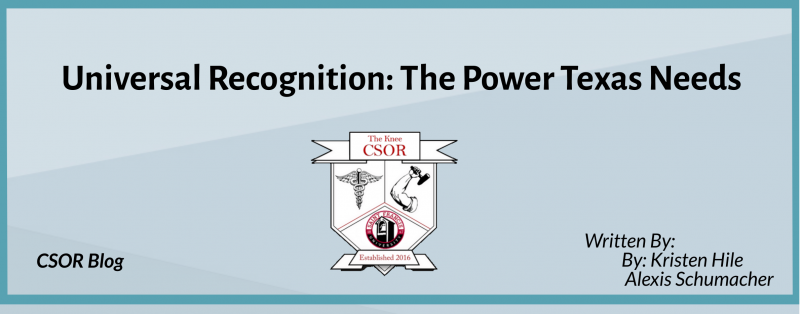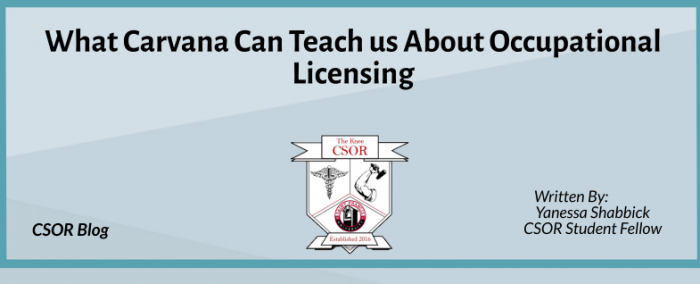
Missouri Committee on Professional Registration – 2/24/20
March 3, 2021
Universal Recognition: The Power Texas Needs
March 17, 2021What Carvana Can Teach us About Occupational Licensing
 Yanessa Shabbick
Yanessa Shabbick Alexis Schumacher, MHRM
Alexis Schumacher, MHRM
Published: 3/3/2021
What Carvana Can Teach us About Occupational Licensing
By: Yanessa Shabbick and Alexis Schumacher MHRM
COVID-19 has touched every industry in the United States including car sales. You would think a business like Carvana would be the beneficiary of the unique environment. In California, however, licensing requirements almost stopped consumers from using the popular service.
In May of 2019, a California car dealership filed a lawsuit in Sacramento Superior Court against Carvana, claiming an unfair advantage by working around state requirements. The lawsuit was seeking a permanent end to Carvana in selling cars in California and restitution for “wrongfully obtained profits.” Ultimately, state officials from the Department of Motor Vehicles stated they could not enforce the licensing laws since Carvana is a website with no physical location within the state
Carvana represents a technological breakthrough with respect to the car shopping experience. Most people can recall driving to a local dealership, negotiating with a salesperson, then driving their new car home. It was never as fast or as easy as we wanted it to be. Carvana changed that. One click, and boom; you’ve got yourself a car. This effortlessly personalized process has become more prevalent thanks to online car dealerships like Carvana.
Does it make sense that state licensing requirements might be used to prevent consumers from utilizing this brand new technology?
Because of state licensing, residents from California, Pennsylvania, or West Virginia can’t visit Carvana in their state. These are just three states that require a vehicle salesperson to be licensed to sell vehicles from a dealership. In the mean time, residents of states like Floridia or Texans don’t face this challenge..
In total, twenty-one states still require a vehicle salesperson license. Given the California lawsuit, it becomes apparent that licensing might stifle the success of websites like Carvana.
The legacy of COVID-19 in the US is likely to be a rethinking of how goods and services are provided to consumers. According to a recent study, 48% of younger Americans shopped online once a week before the pandemic. That figure increased to 62% and shows no sign of slowing down.
If this increased tendency to shop online remains after we defeat the virus, it isn’t clear that keeping state licensure requirements in place is in the consumer’s best interest. Due to the licensing requirements set by state licensure boards, it’s difficult for new companies like Carvana to reach their full potential due to the lack of a physical location. In short, licensing stifles competition and doesn’t allow consumers to make full use of new technology.
In total, there are twenty-four “car vending machines” scattered throughout the United States. If more states consider reforming licensure salesperson requirement, Carvana could place more machines in more states across the country. This seems to be in the best interest of consumers.
Yanessa Shabbick is a junior at Saint Francis University. Alexis Schumacher is outreach and public relations coordinator for the Knee Center for the Study of Occupational Regulation.


